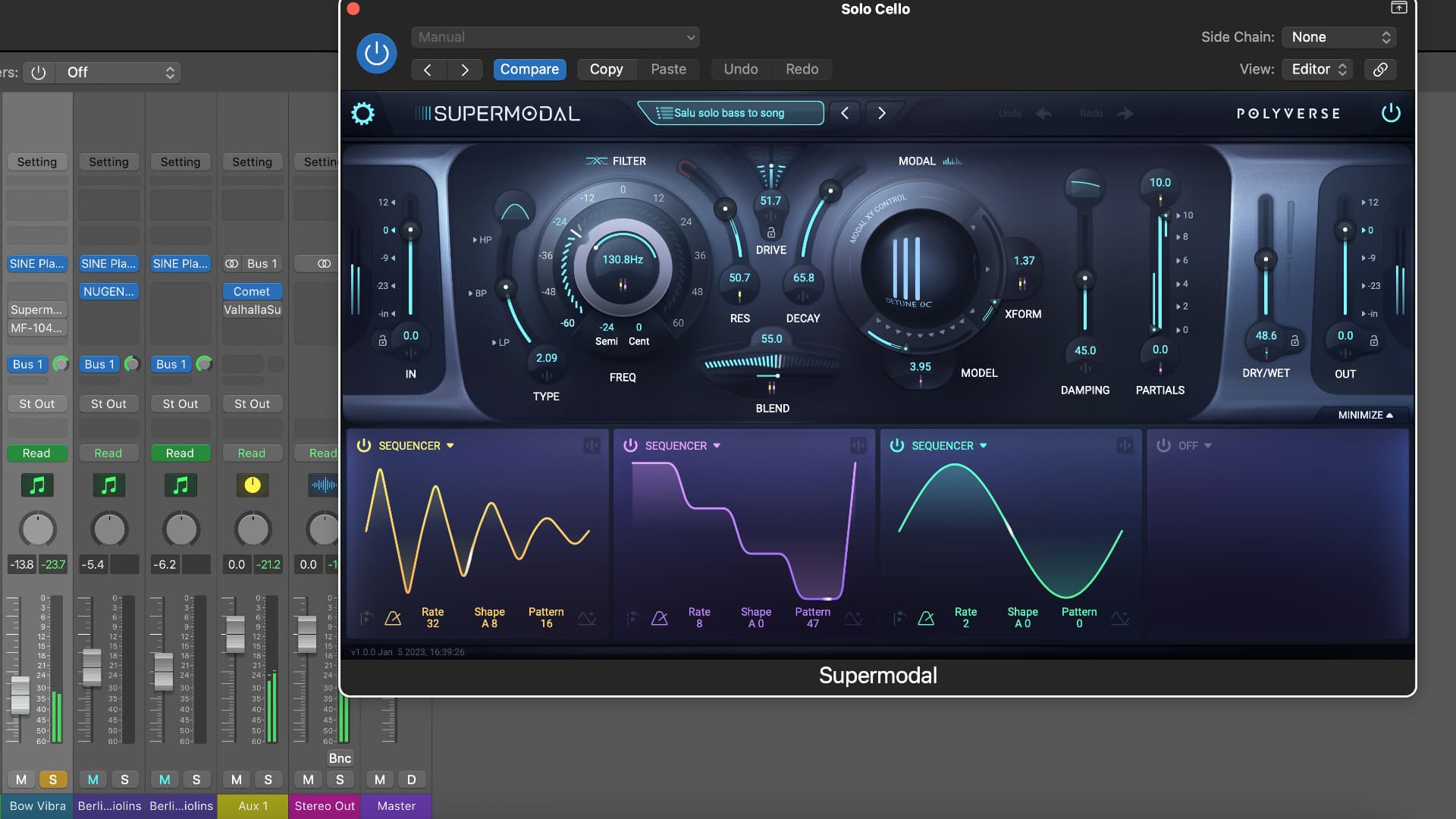
Supermodal is a new cutting edge filtering tool and Comet is an algorithmic reverb. Together, they let you create high-quality cinematic sound for anything from a soundtrack for a documentary to a soundscape for an immersive game.
Let’s start with Supermodal. Supermodal uses hundreds of narrow filter bands working together to emulate the resonating qualities of acoustic bodies, both real and imagined. It is more of a synthesizing engine for existing audio or MIDI notes than what we usually imagine a filter to be. At its heart are two filter sections working in tandem. The Classic Filter is a zero-feedback state variable filter that can morph smoothly between lowpass, bandpass, and high-pass filter modes.
Central to the plug-in, however, is a Modal Filter made up of hundreds of resonant bandpass filters, featuring 27 different resonation variants that organise its bands to emphasise various harmonics across the frequency spectrum. These are grouped into nine filter models. Damping and Partials controls allow users to refine the sound. The Classic and Modal Filter are arranged in parallel. A Blend knob crossfades between them.
Supermodal’s modulation section features four modulation slots, each assignable to one of six modulation sources. Nearly every parameter can be modulated and the plug-in’s modulation generators can even modulate each other for more complex effects.
Despite its starship dashboard design I found Supermodal very simple to use. It’s also an addictive plug-in as you can keep going on spitting out all sorts of useful effects for hours on end.
Supermodal is available directly from the Polyverse website or affiliate retailers for $99.
Comet Reverb
Polyverse’s Comet is a purely algorithmic reverb with controls that enable you to automate its settings and morph from one reverb preset into another.
Comet is very accurate in creating reverberation. If you create, let’s say, a cathedral in Comet, the results are very close to that same cathedral reverb in the gold standard for convolution reverb, NUGEN Audio’s Paragon.
The plug-in has few parameters to worry about: pre-delay, diffusion, and the size and decay are the most important ones. Hi/Lo damp sliders let you dampen the sound of the highs and the lows and colour adds brightness or darkness. You can create reverb for spaces with a smallest size of one cubic centimetre all the way up to 1 cubic kilometre.
Those “limits” are so vast that you can hardly call them that, which is why I was very surprised to find that even if you dial in very high values for size, decay and pre-delay, Comet will never end up creating ugly hiss or a muddy sound.
Unique to Comet as far as I know is that you can have up to five different reverb presets to morph between with a controllable glide time. As with Supermodal, you can assign a MIDI controller to every parameter or control the effects with CV.
Comet retails at $149 directly from the Polyverse website or affiliate retailers.
Tags: Audio


Comments